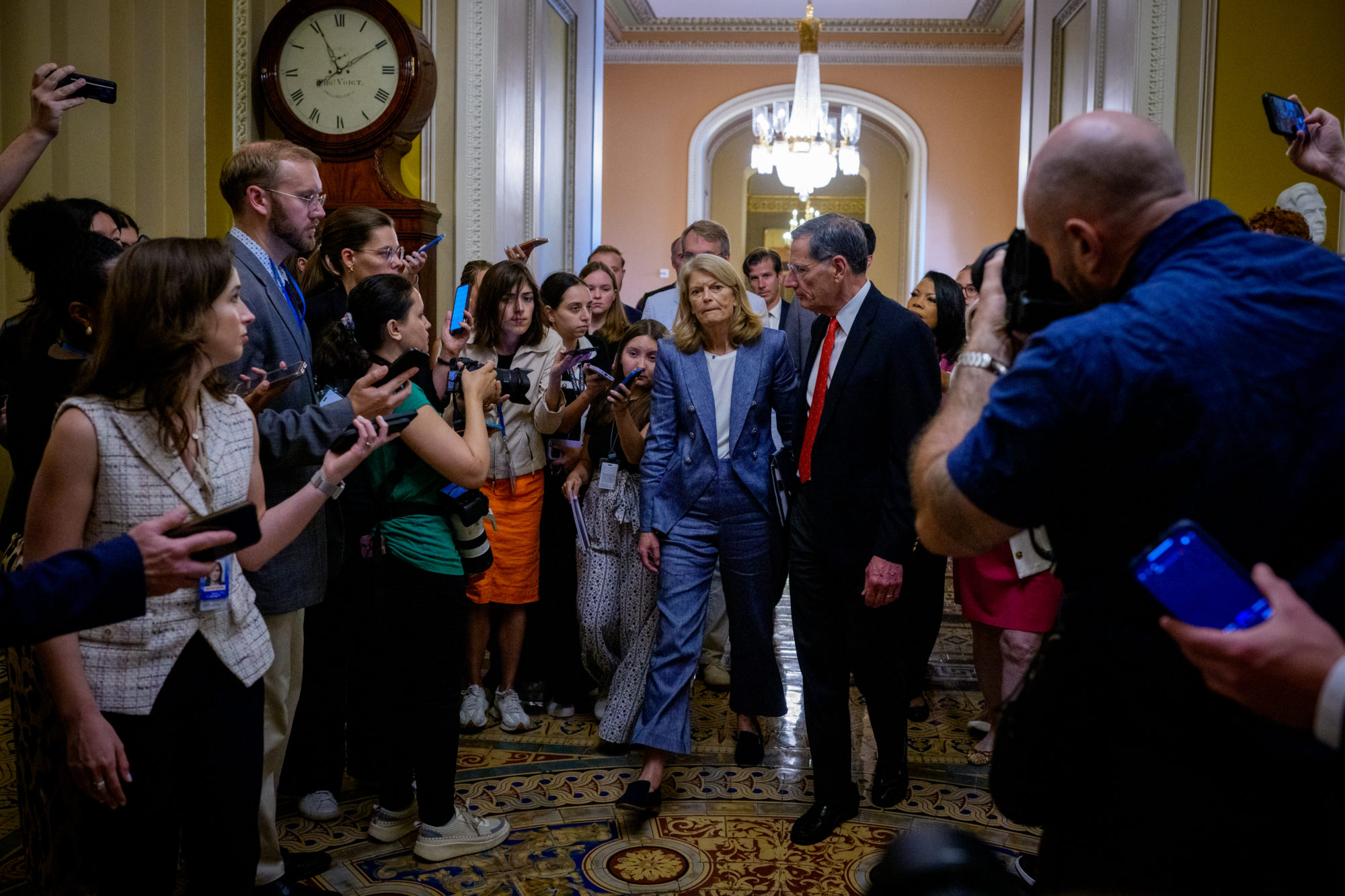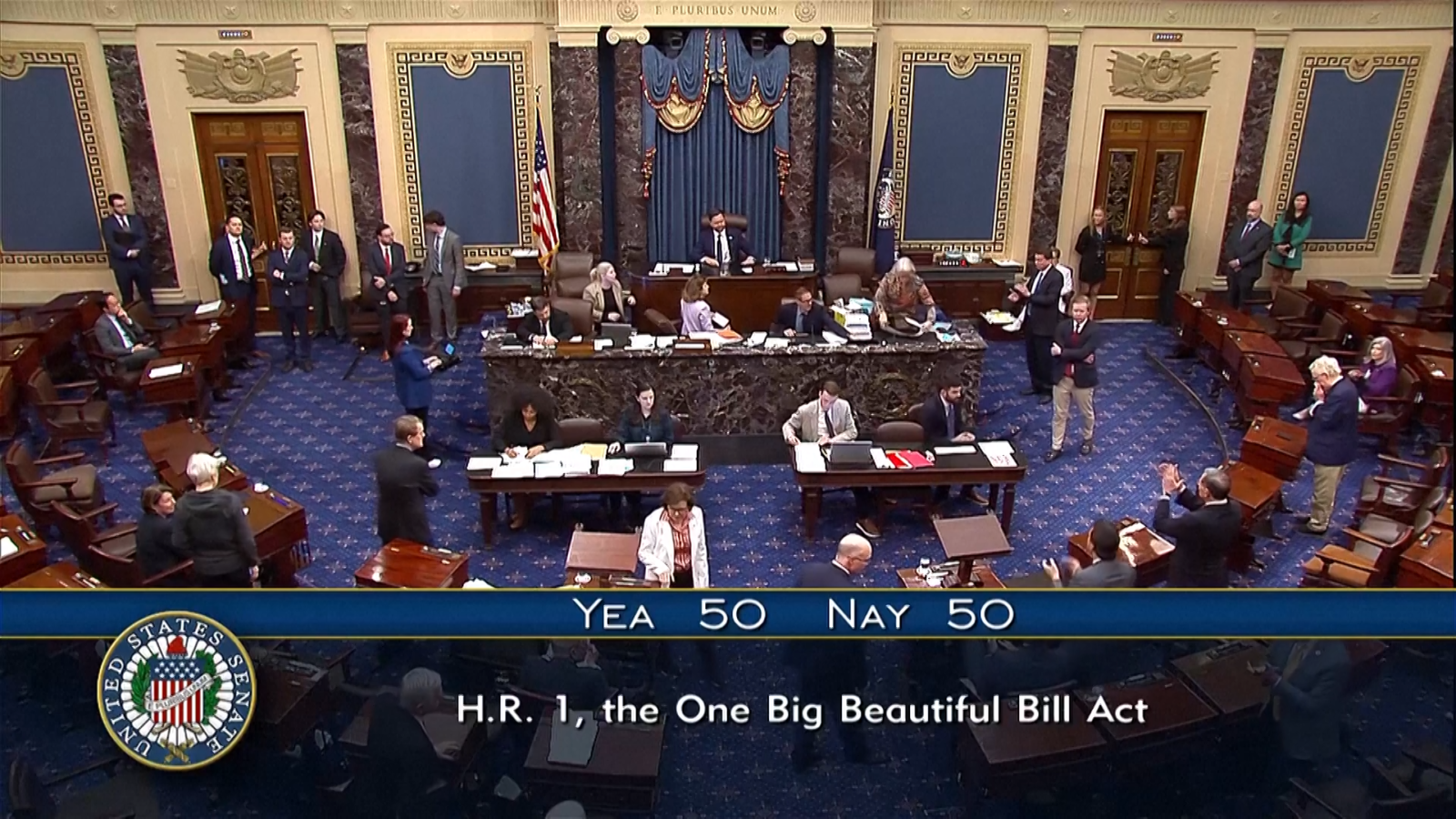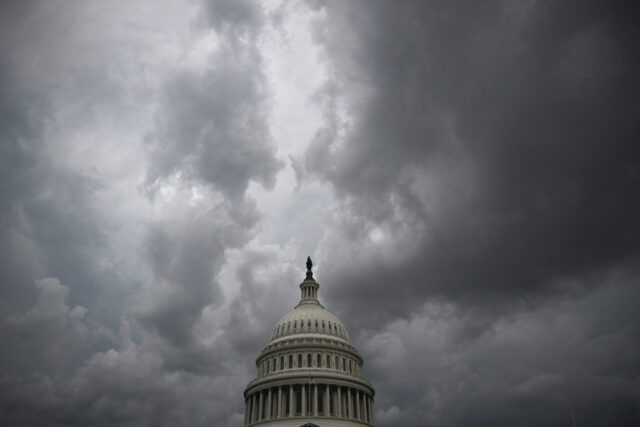
For more politics coverage and analysis, sign up for Here’s the Deal, our weekly politics newsletter, here.
Today’s vote in the U.S. Senate, on Trump’s big bill, was dramatic.
In the chamber, it was even more so.
What happened

The U.S. Senate passed President Donald Trump’s big bill on the narrowest of votes Tuesday with Vice President JD Vance casting tie-breaking vote.
- The Senate passed its version of President Trump’s massive tax cut and spending cut bill by the narrowest of margins, 51-50. Vice President JD Vance had to break the tie.
- This after the longest vote-a-rama in history. Senators cast 49 votes in a marathon 27-hour session, going over stacks of potential amendments to the bill.
- Three Republicans voted “no.” Sens. Susan Collins of Maine, concerned about Medicaid and renewable energy cuts; Thom Tillis of North Carolina, also critical of Medicaid changes; and Rand Paul of Kentucky, concerned about how the bill would add to the deficit.
- The decisive vote? Sen. Lisa Murkowski of Alaska.
This after something I have never witnessed before.
As some of you know, in the “budget reconciliation” process used here, each provision must go through the “Byrd” process or “Byrd bath,” cheekily named for former West Virginia Sen. Robert Byrd. This checks that each provision has a budgetary effect.
Few people have seen this process in real time; it is typically behind closed doors.
Today, as I stepped into the gallery above the chamber, my friend and fellow Capitol nerd Jamie Dupree jogged over to me. “It’s a live Byrd bath!”
There on the chamber floor, with most of the U.S. Senate seated (also unusual), we saw one Democratic and one Republican staffer standing as if in a courtroom, looking up and inches away from Senate parliamentarian Elizabeth MacDonough. They were making their cases to her about last-minute additions to the bill — and whether they qualified for this process.
Why this final Byrd bath mattered
I soon had sources telling me that this final Byrd bath included a provision that eased Medicaid cuts on Alaska and Hawaii — something Murkowski and Republican leaders had worked out to help ease her concerns.
But, as senators waited to vote, I learned the parliamentarian ruled that the proposal did not pass muster.
Suddenly, Murkowski — the decisive vote — was no longer a sure “yes.”
She and Republican leaders went into a side room. After she returned, with a serious and unsatisfied look on her face, she voted “yes.”

Sen. Lisa Murkowski, R-Ala., (center) and Sen. John Barrasso, R-Wy., (center right), walk toward the Senate floor to get President Donald Trump’s big bill through Congress. Photo by Andrew Harnik/Getty Images
Why? My colleague and friends Ryan Nobles and Frank Thorp of NBC managed to conduct this extraordinary interview with her afterward. Her answer: She did this for her state.
What the Senate changed
We are still sorting out what is in this final Senate draft, which was released in the hour before the vote. A few things we know:
- The fund for rural health doubled, from $25 billion to $50 billion. This was something that helped Murkowski’s comfort level, but not Collins’.
- A new proposed tax on wind and solar energy was dropped.
READ MORE: Here’s what’s in the big bill that just passed the Senate
What happens now?
The bill now goes to the U.S. House, where it already faces severe headwinds.
Rep. Ralph Norman, R-S.C., a member of the House Freedom Caucus who is known for breaking with the party, especially over fiscal issues, told me a few hours ago that he is a “no” on the Senate bill.
That is in addition to Rep. Thomas Massie, R-Ky.
Just two more “no” votes and this cannot pass the House. Judging from the calls and texts from my Republican sources, those “no” votes are most certainly there.
In addition to irate fiscal conservatives (the Senate bill now adds more to the deficit), some moderates like Rep. Jeff Van Drew, R-N.J., are concerned about steeper Medicaid cuts in the bill.
Can they meet the July 4 deadline?
All things are possible in Congress, where the rules of time and space do not exist as they do elsewhere.
But, at this moment, it feels like a very uphill climb. And one that could have repercussions for Republicans that they have not yet analyzed.
The conclusion here: Keep a close watch on Congress the next few days. What happens here will have a major impact on taxes, health care and a slew of other issues in the U.S.
Support PBS News Hour
Your donation makes a difference in these uncertain times.

















































